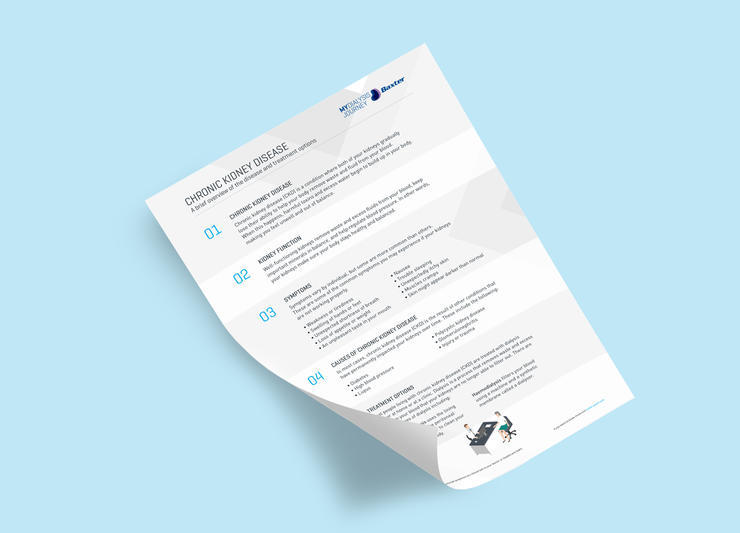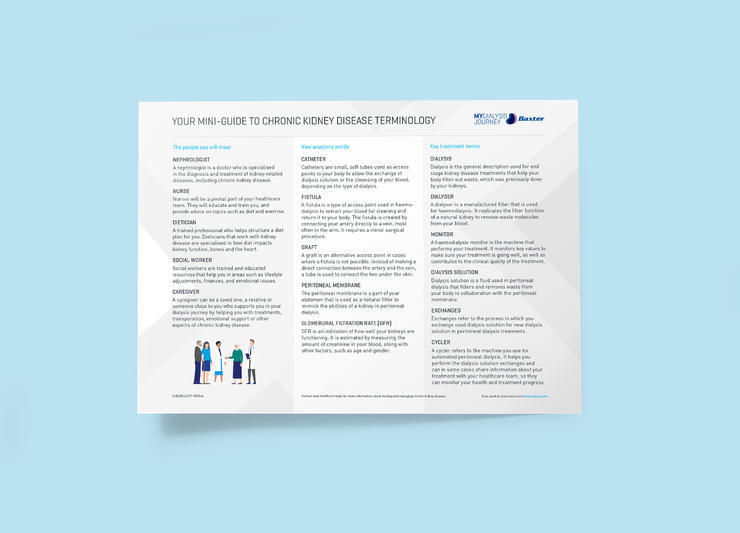All about chronic kidney disease (CKD)
Understanding chronic kidney disease (CKD) can help you make the right choices as you move forward in your treatment journey.
What is chronic kidney disease (CKD)?
When chronic kidney disease (CKD) is present, your kidneys gradually lose their ability to remove waste and fluid from your blood. When this happens, harmful waste and fluids begin to accumulate in your body, causing you to feel unwell. Although CKD is incurable, treatment can help slow its progression, control symptoms, and enable you to live a full life.
CKD affects both kidneys at the same time. While your body has two kidneys to help filter waste, one is not a “back-up” for the other. They work together to cleanse your body. When you are diagnosed with CKD, it means that both of your kidneys are affected and cannot filter waste and fluid from your body properly.
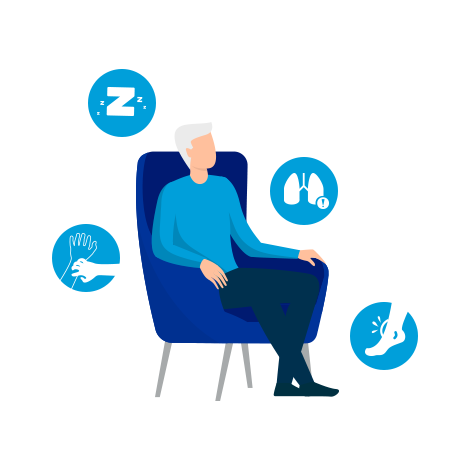
How is chronic kidney disease diagnosed?
Kidney disease is called a ‘silent disease’ as there are often no warning signs. It is not uncommon for people to lose up to 90% of their kidney function before getting any symptoms.1 Symptoms are often nonspecific and may vary from person to person. Because your kidneys are capable of compensating for reduced function, symptoms of CKD may not show until irreversible damage has occurred.
If you have medical conditions (e.g. diabetes and high blood pressure) that put you at risk for CKD, your doctor will most likely check your kidney function by monitoring your blood pressure and taking urine and blood samples on a regular basis.
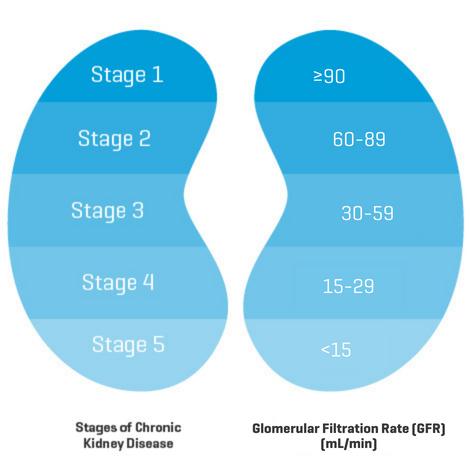
Chronic kidney disease stages
CKD often progresses over time and has 5 stages. Stages are diagnosed depending on how well your kidneys are currently able to filter your blood. Your glomerular filtration rate (GFR) indicates how well your kidneys are working.
In the early stages (Stages 1–3), your kidneys are still able to filter waste from your blood. In the later stages (Stages 4–5), your kidneys must work harder to filter your blood and may stop working altogether.2
What causes CKD?
Multiple risk factors and causes can increase your chance of developing chronic kidney disease. It is therefore important for you to learn about these potential causes and risk factors so that you can try to reduce your risk of developing CKD.
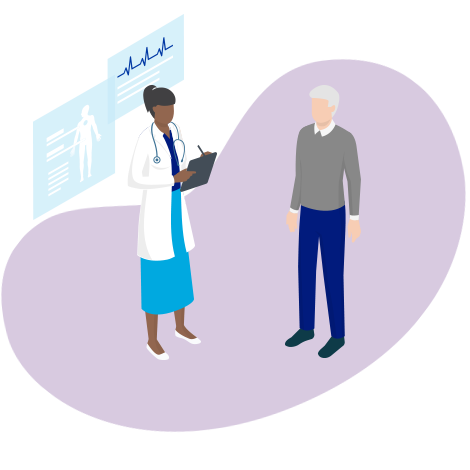
How is CKD treated?
There are various treatment options for chronic kidney disease and it is critical that you play an active role in determining the one that suits you best.
Most late-stage CKD patients are treated with dialysis, as their kidneys can no longer filter blood sufficiently. Kidney transplant and conservative care are alternative options.
Each treatment option has its own benefits. Prepare yourself to have an informed discussion with your clinician about which treatment is best suited to your physical, emotional and lifestyle needs. Learn about the different CKD treatment choices so you can discuss them with your clinician and select the most suitable treatment option for you.
Subscribe to My Kidney Journey newsletter
Sign up now to receive exclusive content on kidney disease, treatment options, lifestyle tips and inspiring patient stories.

